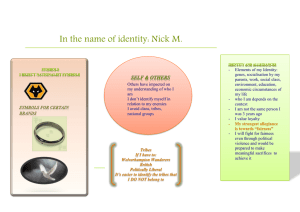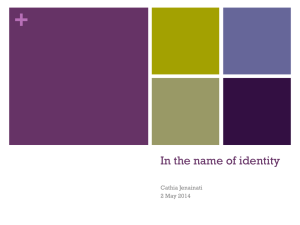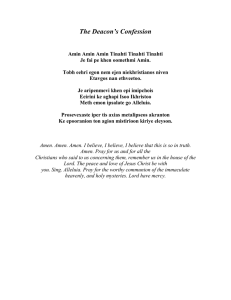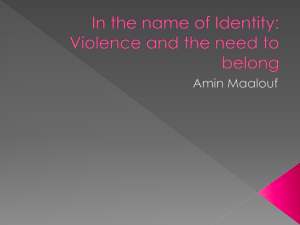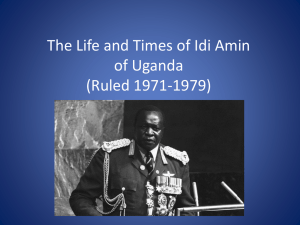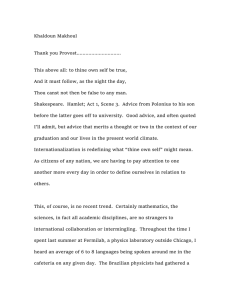Hyphenated Identities
advertisement
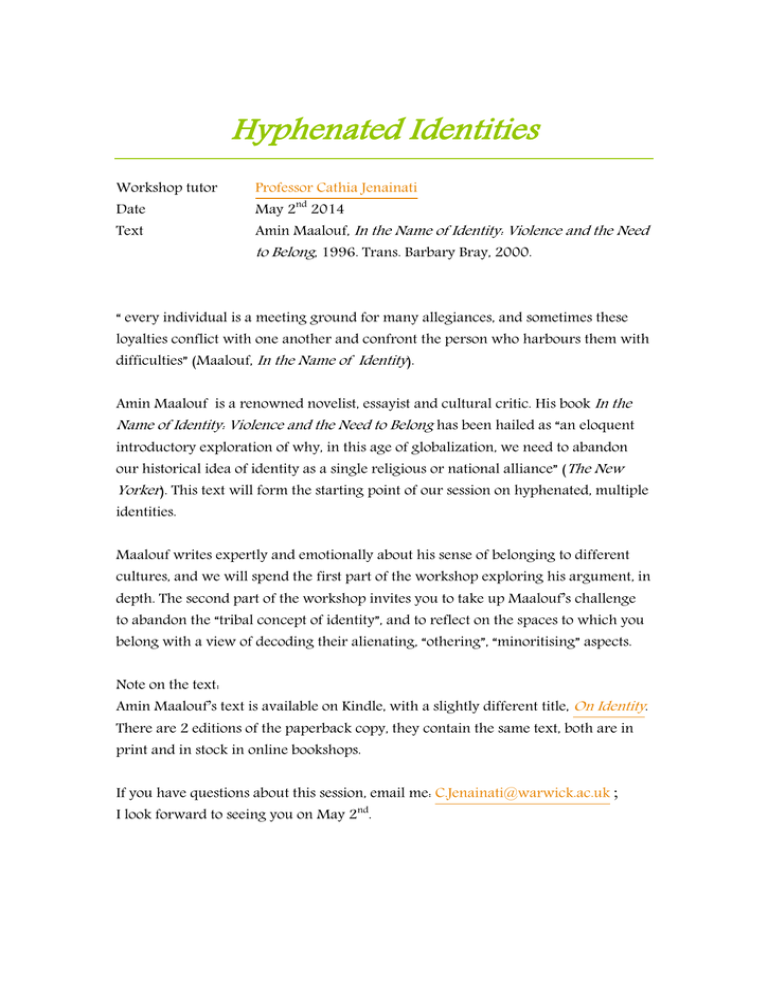
Hyphenated Identities Workshop tutor Date Text Professor Cathia Jenainati May 2nd 2014 Amin Maalouf, In the Name of Identity: Violence and the Need to Belong, 1996. Trans. Barbary Bray, 2000. “ every individual is a meeting ground for many allegiances, and sometimes these loyalties conflict with one another and confront the person who harbours them with difficulties” (Maalouf, In the Name of Identity). Amin Maalouf is a renowned novelist, essayist and cultural critic. His book In the Name of Identity: Violence and the Need to Belong has been hailed as “an eloquent introductory exploration of why, in this age of globalization, we need to abandon our historical idea of identity as a single religious or national alliance” (The New Yorker). This text will form the starting point of our session on hyphenated, multiple identities. Maalouf writes expertly and emotionally about his sense of belonging to different cultures, and we will spend the first part of the workshop exploring his argument, in depth. The second part of the workshop invites you to take up Maalouf’s challenge to abandon the “tribal concept of identity”, and to reflect on the spaces to which you belong with a view of decoding their alienating, “othering”, “minoritising” aspects. Note on the text: Amin Maalouf’s text is available on Kindle, with a slightly different title, On Identity. There are 2 editions of the paperback copy, they contain the same text, both are in print and in stock in online bookshops. If you have questions about this session, email me: C.Jenainati@warwick.ac.uk ; I look forward to seeing you on May 2nd. Preparation for the session (approximately 4 hours) 1. Read Amin Maalouf’s book, In the Name of Identity. Make notes that record your position vis-á-vis his ideas. 2. Choose a classmate and agree on a 2 hour slot when you are both able to meet and interview each other. 3. Conduct an interview (30-50 minutes) in which you gather information on your classmate’s sense of their “identity”. (You may record the interview provided you seek and obtain written consent) 4. Using the information you recorded at the interview, write up a short presentation with the following headings a. ID and Allegiances b. Self and Others c. Tribes d. Symbols 5. Complete and email your presentation to C.Jenainati@warwick.ac.uk by May 1st 5:00pm (local time wherever you are). [I have posted a sample of what this task might look like on the module’s webpage; feel free to be creative, do your own thing!] Additional references: Amin Maalouf, Disordered World: A vision of the post-9/11 World. 2009. Trans. George Miller. Bloomsbury, 2011. Amartya Sen, Identity and Violence. Suha Sabbagh, ed. Arab Women: Between Defiance and Restraint. Olive Branch Press, 1996. Samir Khalaf, ed. Arab Youth: Social Mobilisation in Times of Risk. Saqi, 2011. [see especially Part 2, “Negotiating Identity in Times of Risk” and Part 3, “Representation and Self-perception”.] Fatima Mernissi, The Veil and the Male Elite: A Feminist Interpretation of Women’s Rights in Islam. What does it mean to be Australian (http://www.youtube.com/watch?v=MISM2funmAw) Tolerant, freedom, taking people on their merit, What does it mean to be Australian? (http://www.youtube.com/watch?v=7OZZ3NiCtLE) What does it mean to be British—and does it matter? (http://www.theguardian.com/uk/2012/jun/17/being-british-does-it-matter ) What does being British mean to Britain (http://www.bbc.co.uk/news/uk-24304418 )
